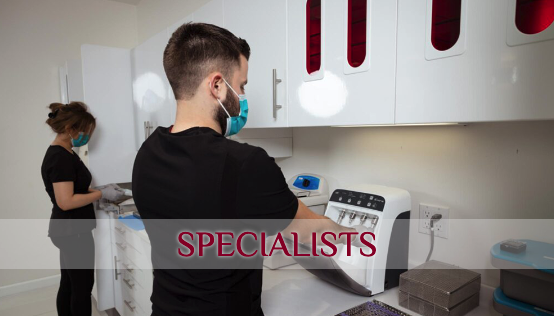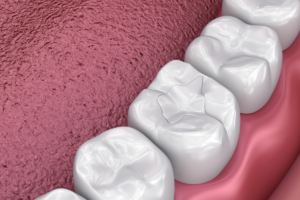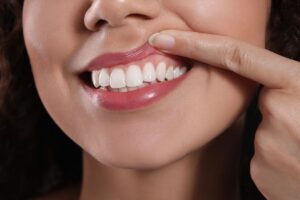Dental crowns are a great option for teeth restoration, but their different types might confuse you. That is why this article aims to explain all types of dental crowns and their details so you can make an informed decision for yourself. If you have a damaged tooth that you want to fix and are wondering about dental crowns, this is the ideal article for you.
Who Is the Ideal Candidate for Dental Crowns?
Dental crowns are fixed and natural-shaped caps that cover damaged teeth and are considered a restorative treatment. So, naturally, they are recommended for teeth that don’t have reliable enamel for various reasons. These reasons may include severe decay, large cracks, malocclusion, or risk of fracture for root-canaled teeth.
What Are the Different Types of Dental Crowns and Their Materials?
According to your needs and concerns, your doctor will decide on the type and material of your crown. Generally, these are the main types and materials:
Porcelain Crowns
Porcelain crowns are the most popular type since they are all ceramic and do not have certain side effects that other types, i.e. metal crowns, do. Nowadays, porcelain crowns are not only used for front teeth but also anterior, posterior, and molar, thanks to recent technological advancements. They have the shape, size, and color of a natural tooth, and you can have them without any aesthetic concerns. The types of porcelain crowns are:
- Zirconia Crowns: very strong and resistant to chewing, chipping, or breaking;
- Glass Ceramic: medium-strong and suitable for anterior or posterior teeth;
- Hybrid Ceramic: a combination of ceramic and composite materials.
In another article, “Everything You Should Know about Porcelain Crowns”, we have discussed porcelain crowns thoroughly, if you are interested in knowing more about them.
Also, Dr. Maryam Horiyat has an informative video on porcelain crowns.
Full Metal or Porcelain-Fused Metal Crowns
Full metal crowns, like golden crowns, are less common today, and dentists recommend other types of crowns to replace these metal ones. However, there are porcelain-fused metal crowns, such as titanium crowns, that are widely used all around the world. Since there is a risk of metal entering your blood and causing chronic illnesses, holistic dentists recommend you replace your porcelain-fused metal crowns with all porcelain ones.
Other Types of Dental Crowns
There are also less common crown types like resin crowns or stainless-steel crowns. Resin crowns are used temporarily until the dental lab delivers the permanent crown. Stainless steel crowns (SSC) are sometimes used for baby teeth and they fall as the permanent teeth erupt.
Procedure of Dental Crowns

There are three steps for getting a crown, which usually require three appointments with one-week intervals.
At the first appointment, you will get a personalized treatment plan, as your doctor examines your oral health, discusses your concerns and goals, and takes images and impressions necessary for your treatment. Then your doctor will walk you through the steps and you can choose the color of the crown. At last, you and your doctor discuss the type and material of the crown so the lab can take the order.
At the second appointment, the crown is put in your mouth to test if it fits and if it meets your needs. Then your doctor checks the bite, its edges, and the enamel to ensure that the crown works just as smoothly and seamlessly as it is supposed to. Naturally, if it needs any adjustments, your doctor will send it back to the lab. Meanwhile, you can have a temporary crown until the permanent one arrives.
At the third appointment, your dentist will have a follow-up session to address any concerns or symptoms you might have. During this appointment, you can talk about your experience with the crown and any possible problem with bite or fitting. If everything is okay, your procedure is finished you can go back to your normal life worry-free.
Aftercare of Dental Crowns
Your doctor will give you aftercare instructions, but here are some general tips:
- Brush your teeth twice a day to avoid infection;
- Floss cautiously and avoid the edges of the crown;
- Refrain from biting too hard to prevent any damage to your crown;
- In case of severe pain or infection, contact your doctor immediately.
How To Find an Experienced Dentist for Dental Crowns?
This article discussed different types of dental crowns and their procedure. But how can you find a trusted dentist for the procedure? Aria Dental in Orange County, California is a holistic and biological dental office that offers safe and natural solutions that consider both your oral and overall health. Our professional staff will help you get a porcelain dental crown in a relaxing and friendly environment. Contact us today for a consultation and to discuss your treatment plan.



















